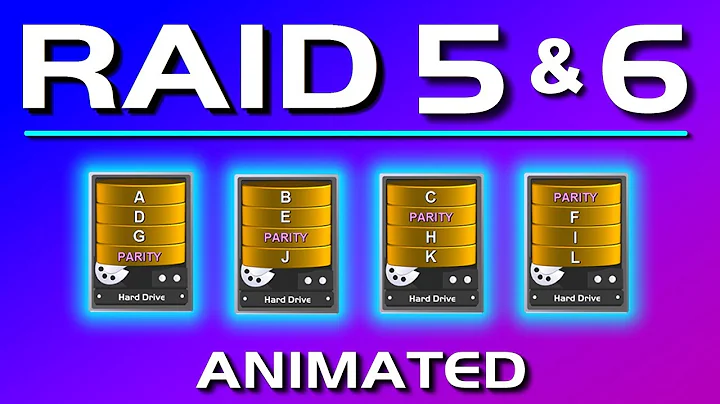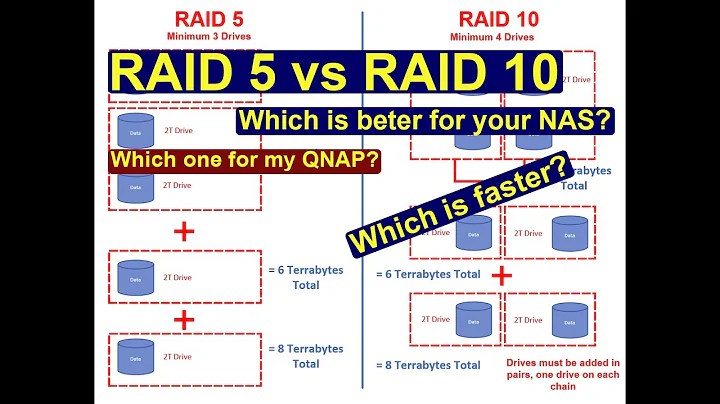RAID 5 with different sizes and different speeds?
Solution 1
Yes, in a RAID5 array the smallest physical volume (disk or partition) will define the size of the array, so any extra space on larger volumes in the array is not used.
You should not see any issues with drives of different speeds other than the fact the the slower drive(s) will reduce average performance.
If one of the drives is much much faster than the others then RAID4 is better then RAID5 as it keeps the parity on one one disk. If you select the faster drive for the parity area you essentially have RAID0 on the other two+ drives for read access, and parity on the faster drive (for every write, the parity drive much be written to too, as with the distributed parity blocks of RAID5). But I doubt that the difference between 15K and 10K drives will make much difference to overall performance either way here. RAID4 offers the same protection as RAID5 (it can survive one drive failing), though is not always offered as it is very rarely desirable in practise.
Solution 2
The Dell Perc controllers are the only ones I have much experience with, and with these controllers you can use any combination of disks that you want. The smallest disk will constrain the capacity and the slowest disk will constrain the speed.
But this is an odd question. If you're paying all that money for a shiny new RAID controller why would you handicap it by using old disks? I have occasionally had to use an old disk when a disk failed and I didn't have a new replacement to hand. I wouldn't recommend it though.
JR
Solution 3
The problem is that it has a damaged disc on RAID 5 and the solution that I seek is to build another SCSI disk to avoid having to invest in a new complet SAS system (which I recommend) is much more reliable. Thank you very much for your answers, try to get the system change. Sorry for my english :).
Related videos on Youtube
Admin
Updated on September 17, 2022Comments
-
 Admin almost 2 years
Admin almost 2 yearsWith RAID 5 capability is lost if there are disks of different sizes? Same as RAID 0 and RAID 1. If something happens the speeds are different? 10K and 15K.
-
wazoox about 15 yearsThen you'd better choose a disk as close as possible as the original. Usually RAID vendors can sell you (very expensive) obsolete drives : for instance I have 73GB 10K RPM drives in my client spare stock :)
-
Axel about 15 yearsIf using the same drive model, I generally recommend getting the drives from a mix of suppliers. You don't want all the drives in an array having come from the same batch and that batch to be one that had QA problems! I do not have a lot of experience with hardware RAID, but with software RAID under Linux I've had no problems with mixing drive models and even using drives from different manufacturers (though performance has never particularly been my reason for using RAID).
-
ThorstenS almost 15 yearsI also mixed SCSI and P-ATA harddisks, when a SCSI disk in a Raid1 died. No problems occured for a long time. I love softwareraid 0




